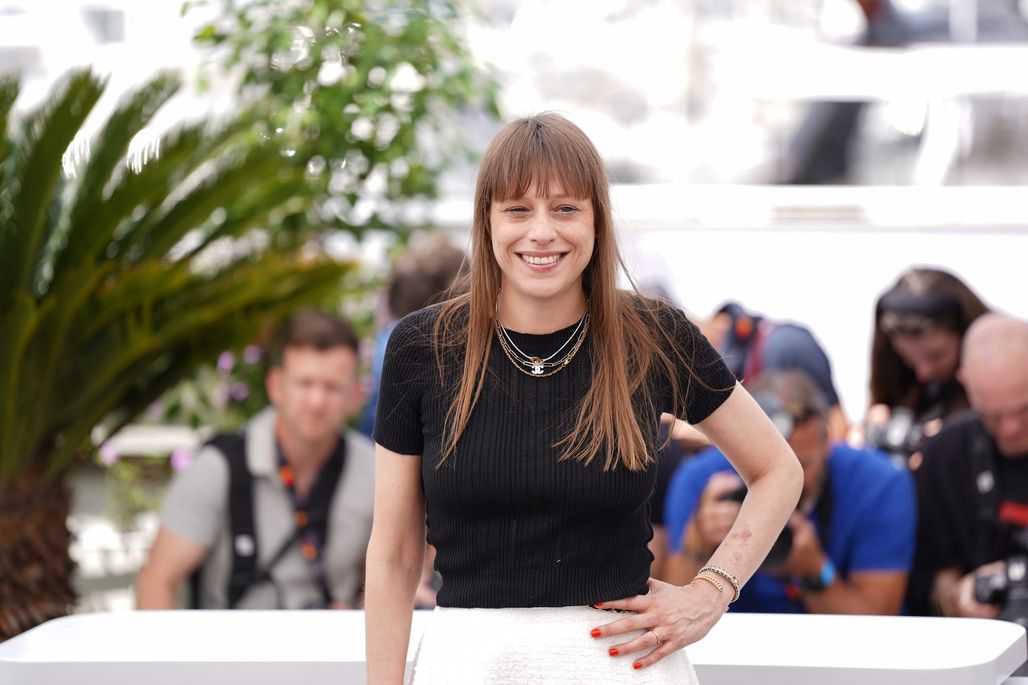
An encounter with Alice Winocour, member of the Un Certain Regard Jury

A graduate of the 2002 Fémis class, Alice Winocour was trained as a screenwriter before moving onto directing with short films. Kitchen, a 14-minute film, allowed the Parisian filmmaker to participate in her first Festival de Cannes in 2005. Ten years later, she presented a dramatic feature film in Cannes, Maryland (Disorder), selected for Un Certain Regard. Her films, thought of as confrontations, provide portraits of strong women and question the connections between individuals. This year she’s part of the Un Certain Regard Jury, presided over by John C. Reilly. Here’s her interview with the Festival de Cannes.
You’re a member of the Un Certain Regard Jury. What’s particular about the films in this selection?
It’sa selection I’m really attached to. I already presented a film there, Maryland (Disorder), a few years ago. I have the impression that this selection gives us images, a way of reading the state of the world that is at once political, social, cinematographic. I find that very inspiring. It’s a selection that’s very rich, I’m happy to be a part of this jury.
In2005, you presented Kitchen, your first short film, In Competition. What are your memories of that?
I felt like I had butterflies in my stomach. Going up on stage terrorized me, not because I had to answer questions, oddly, but presenting a film is a real physical ordeal. I remember that when presenting Kitchen, I had to hold on to Thierry Frémaux’s arm because I really thought I was going to be ill.
Your films examine very different subjects, where do you find this inspiration?
Myfilms always come from something very personal. The more intimate they are, the more I need for them to take place in a world that is not necessarily my own, like in a different time period for Augustine (2011). These are unconscious processes, it’s hard to summarize how an idea comes to me. Looking back, I realize that I write and direct a lot of stories about liberation, about revolt. I like strong female characters, the idea of having the same actress in nearly every shot of a film interests me.
What relationship do you have with your actors?
There are a lot of actors with whom I’d like to work again. For me, they’re a sort of family. They’re people who’ve given life to characters that I’ve invented, to a part of myself, so naturally we have a strong connection.
You’ve come out of Fémis, do you have any advice for an aspiring filmmaker?
Theadvice would be to not listen to advice. You have to follow your intuitions, invent your own rules and develop a singular way of looking at things.
You could almost say un certain regard…
It’strue! That’s also what’s really moving in this selection. There are a lot of debut films and we can sense there are voices coming from countries where we don’t often hear about cinema. That’s also what’s exhilarating: we’re hearing new, unique voices, the rules of the game have been upended. In the selection this year, there are a lot of African countries: the Congo, Sudan, the countries of North Africa… Through the stories of oppressed peoples, which have been hidden from history, there’s this idea of finding a place for oneself through cinema.
How do you go from writing a script to directing a film?
Icame from the screenwriting section in Fémis so for me, the writing and the story are important. When you go to directing, I feel that you have to forget all that and go against the script. I really like artistic direction: trying to find the right language of the film, its style, its look… All that work is done collectively and that’s pretty exciting. I am at first alone, when writing, then I manage to get a lot of other people into my parallel world.
What is the secret to a good script?
Thereisn’t one. We make prototypes, like the great couturiers. There is no mould, and that’s what’s great about film, what we have to preserve. It’s also why Cannes is such a special place, cinema is really defended here.


